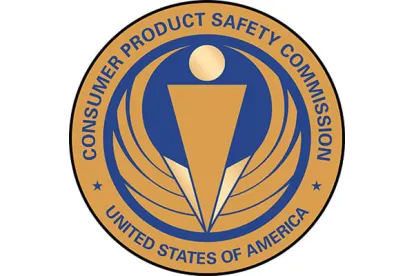Recently, we wrote about how the impending presidential election might affect the U.S. Consumer Product Safety Commission (CPSC), and specifically what might happen with the Commission’s current vacancy and the two more (at least[1]) that will arise during the next presidential term. Now we’ll take a look at how the upcoming congressional elections may also affect the CPSC and the companies it regulates.
Increased Congressional CPSC Chatter
The 116th Congress saw 20 bills introduced in the House that pertained directly to the CPSC. These bills ranged from bans of specific CPSC-regulated products, like inclined sleepers, to more sweeping policy reforms, like the FASTER Act, which intended to speed up the agency’s handling of company-initiated recalls. Of these 20 bills, nine cleared the House Energy & Commerce Committee, and seven passed on the House floor, all by unanimous votes.
Granted, some of the 20 bills were likely introduced primarily as political statements, including the three bills that would have given the CPSC jurisdiction over firearms. But for seven CPSC bills to clear the House amid the distractions of the last two years demonstrates an unusual level of congressional attention paid to an agency with a modest Capitol Hill profile. In fact, it’s been 12 years since the last major legislative CPSC changes, the Consumer Product Safety Improvement Act of 2008, but the activity we saw in the 116th Congress suggests that members might soon be interested in another overhaul bill. Fundamental changes – such as repealing the information-disclosure protections of section 6(b) of the Consumer Product Safety Act (CPSA) – could be on the table.
More Friendly Ears Next Year?
You’ll note we’ve focused so far on the Democratic-majority House, and not on the Republican-majority Senate. The reason is simple: There has been no meaningful CPSC legislative activity in the Senate, including on nominees, where former Acting Chairman Ann Marie Buerkle’s nominations never had a floor vote across three years and Dr. Nancy Beck’s nominations appear similarly stalled. Of the seven bills that cleared the House floor, not one has even had a hearing in the Senate, and there is no reasonable prospect that this will change in the waning days of the 116th Congress.
So what happens next? All the energy in the House is unlikely to dissipate just because the calendar turns a page. And the outcomes of next month’s elections will determine whether the House finds a willing Senate partner in the 117th Congress.
If Republicans maintain control of the Senate, the odds of dramatic changes to the CPSC’s statutes seem slim. Given the decade-plus since the last significant reform and the growing list of CPSC issues reflected in the bills passed by the House, Senators may be willing to find some areas of consensus, if only to give a few members of Congress legislative victories to campaign on in 2022, but we are unlikely to see any tectonic shifts.
There would likely be bigger changes if the Senate shifts to a Democratic majority. The bills that passed the House this year could be just the start. Some of the more fundamental changes that stakeholders have advocated for years may be on the table, including paring back or repealing the information-disclosure provisions of Section 6(b) of the Consumer Product Safety Act (CPSA). Advocacy groups made Section 6(b) a primary target in the run-up to 2008’s CPSIA, which ultimately halved the time companies have to review and comment on CPSC’s proposed disclosures of company-specific information. In the 116th Congress, Representative Bobby Rush (D-IL) introduced a bill that would eliminate Section 6(b)’s provision that allowed a company to file for an injunction against an allegedly inaccurate CPSC disclosure. That bill has not even had a hearing, much less a vote, but in a 117th Congress that included a Democratic Senate, that type of legislation might meet with more success.
In most years, CPSC issues – apart from nominations – take up so little congressional bandwidth that they may not be front-of-mind for companies’ and industries’ government relations teams. But 2021 could be different. If CPSC bills start moving, being able to quickly plug CPSC insight into the GR mix could be essential.
[1] It’s not uncommon for commissioners to leave before the end of their terms, particularly when control of the White House or Congress changes.



 />i
/>i

